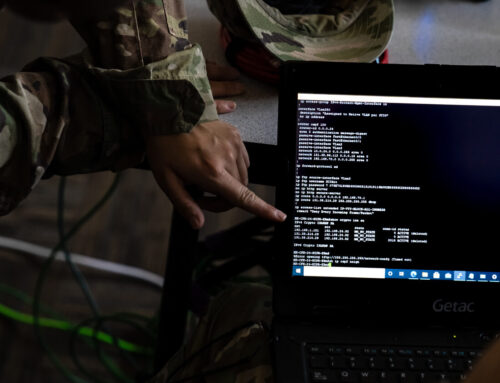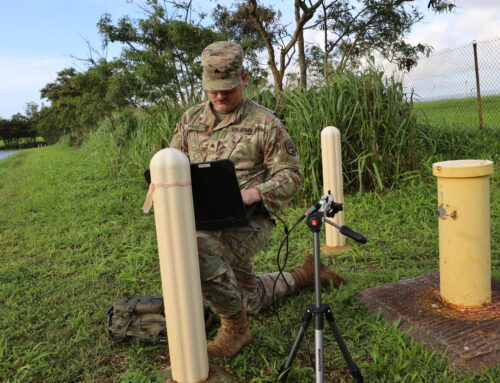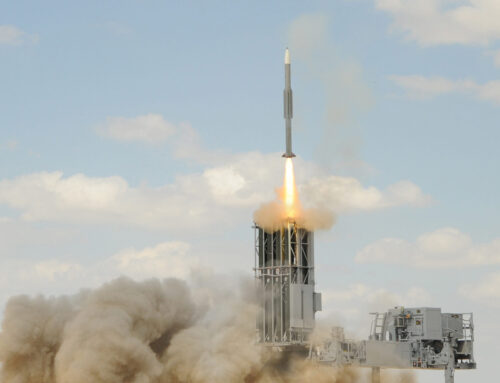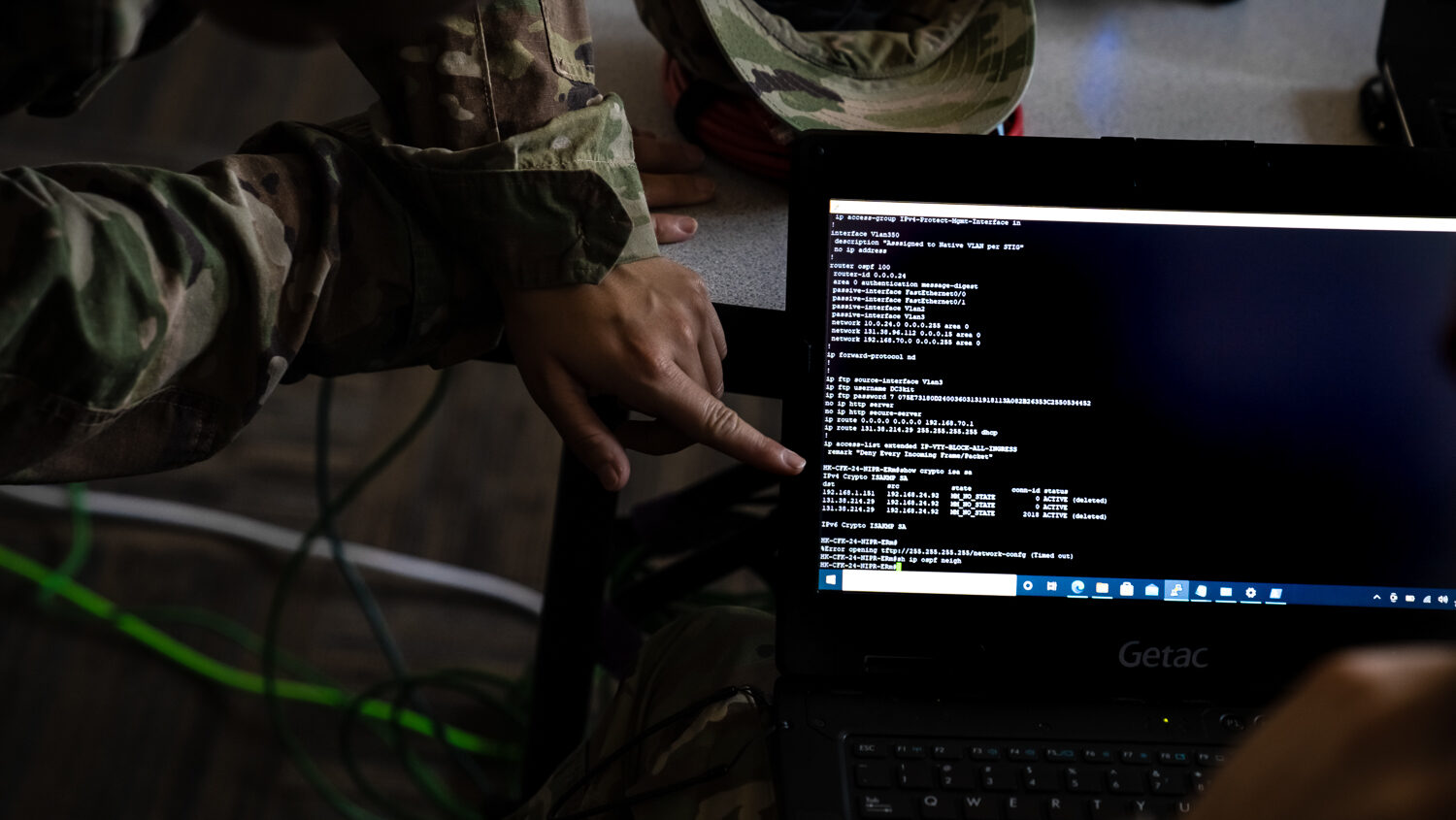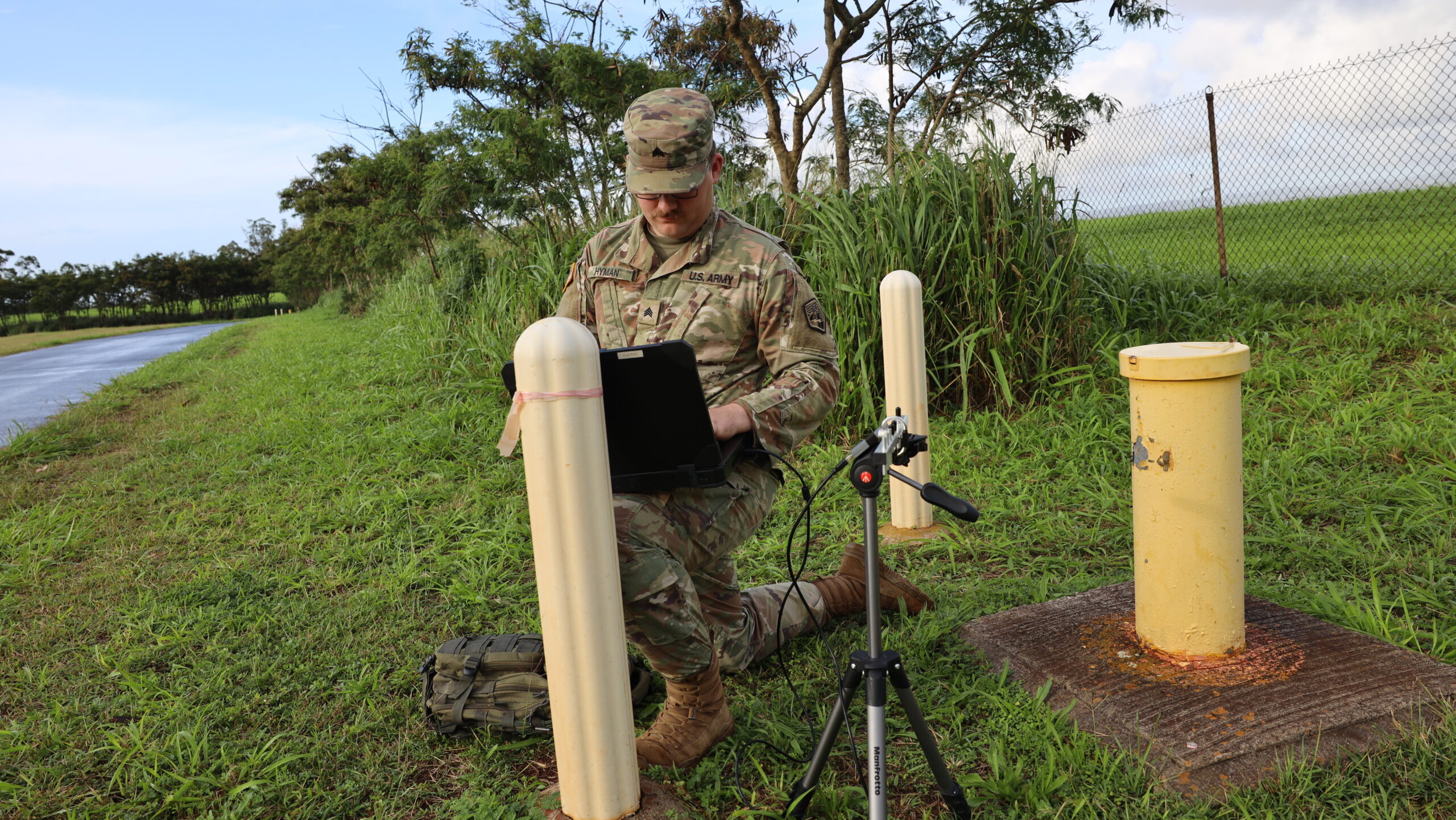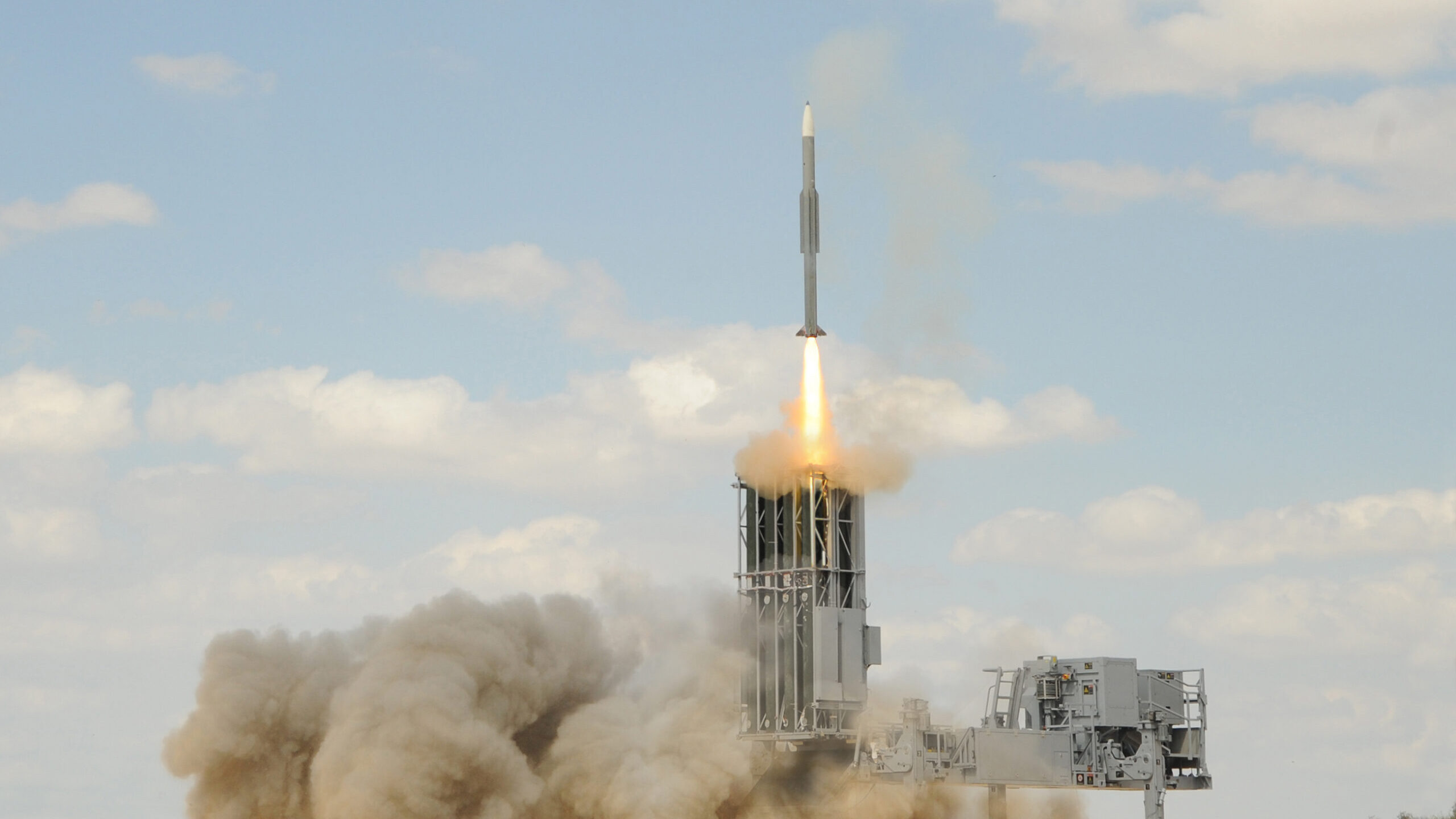The GPS constellation that provides positioning, navigation and timing signals to the US military and civilians around the world, is made up of 31 active satellites. (BlackJack3D/Getty Images)
The third generation of GPS satellites continues to deploy, and US Space Force has selected companies to introduce new Low Earth Orbit augmentation (LEAP) under the Resilient GPS program – yet these upgrades, while necessary, are not sufficient to adequately address growing risk from attacks to GPS. Ground-Based Position, Navigation and Timing (PNT) must be a part of efforts to upgrade and back up GPS if we are to meet rapidly evolving threats.
Among the obstacles keeping us from addressing growing adversary counter-space capabilities is the failure to imagine what a day without space might look like. The seams between space, air, ground, electronic warfare and cyber are preventing full appreciation of cross-boundary threats to PNT. We should be organizing more holistically around a diverse set of PNT solutions, including adding a ground-based element to provide PNT signals receivable by our smartphones and other critical receivers.
For decades, the civil-military success of the GPS program has supported unprecedented automation stemming from the widespread availability of accurate PNT. The nation’s critical infrastructure: telecommunications networks, the energy grid, and the financial sector all rely on GPS signals to operate. Legacy routines that used to operate independently from space-based signals have long since been retired.
Recently, jamming, spoofing, cyber, and physical attacks have brought into question whether we have become overly dependent on space-based PNT signals. An attack (kinetic or electronic warfare) or mishap in the crowded low earth orbit could have cascading impacts and degrade or even eliminate the weak signals from Global Positioning System (GPS) satellites in medium earth orbits.
Without access to space, the day to day technologies we take for granted — navigation, logistics, travel, alarms, AI sensors, robotic actuators, ATM machines, agriculture — stop working. 911 calls spike in volume, quickly overwhelming systems designed around automated location, and over time, telecommunications networks fail as they lose synchronization. The public, having built much of their lives around ever-available communications and location information, would further place a surge of demands on critical infrastructure that has lost control of essential functions. In short, if GPS goes down, critical infrastructure fails and our nation plunges into chaos.
This scenario is not science fiction. Heightened tensions around the world include adversaries that have demonstrated attacks on space systems. These threat actors know that Space provides an asymmetric advantage to the United States and our allies. In their perverse calculus, an attack on space assets, intended to reset a losing hand, would be an escalation preferred over a nuclear exchange. What was a high bar for an attack on space systems is being lowered daily as Ukraine and the Middle East showcase adversary exploitation of GPS and other space-based PNT signals.
RELATED: GPS shows some Lebanese citizens in Jordan, likely result of combat-related ‘spoofing’: Experts
We need to add resiliency to our current space-based PNT, creating services to complement and back up GPS. Admiral Thad Allen, USCG (ret.), the current Chair of the Space-based PNT Advisory Board, said that “America’s continued over-reliance on GPS for PNT makes critical infrastructure and applications vulnerable to a variety of well documented accidental, natural, and malicious threats.”
The Board reported this summer that China and other nations are already ahead of the United States in building out resiliency to GPS and PNT. They concluded that the United States has “fallen behind,” presenting a “troubling shortfall in GPS’s greater vulnerability to jamming and spoofing.”
China continues to build more capable and resilient PNT systems with an integrated architecture. The Chinese approach to PNT enhances their efforts to gain global technology market share for critical infrastructure industries. We need a whole-of-government approach, working together with the private sector to counter Chinese PNT gains. PNT services underpin the smooth functioning of our economy, and we need a ground-based component to compete.
The United States should heed the board’s warning. A ground complement to GPS would address both today’s PNT availability issues and provide needed backup. This would be a deterrent to any adversary considering an attack on GPS. When space-based GPS is threatened, a ground-based system, receivable by smartphones and other widely available devices, would greatly reduce adversary motivation for counter-space escalation.
There is widespread agreement on the need for ground based PNT as space-based alternatives share common GPS vulnerabilities but there is also much debate on the approach. Some PNT professionals advocate bringing back an enhanced Long Range Navigation (eLORAN) capability that would upgrade ground-based transmitters using Low Frequency signals from the decommissioned LORAN system, creating excellent propagation characteristics but needing either larger receiver antennas or new antenna technology breakthroughs to be receivable by smartphones. Others point to FM Radio and TV broadcast signals that can support distribution of accurate timing reference after disasters with new protocols. Ultimately, however, we will need to provide signals that are receivable in the devices we rely upon every day. Shifting our National policy from Resilient GPS to Resilient PNT, would ensure that we build an architecture and systems that degrade gracefully under the full spectrum of conflict using multiple ground-based approaches.
The FCC is currently reviewing the record on a proposal that would enable a ground-based complement and backup to GPS. The act of establishing a ground-based PNT service category, as the proposed FCC order would do, would let the market introduce and sustain competitive solutions without the tail of a new federal program. The proposal is a strong step towards addressing our national security PNT risk. In the meantime, DoD and other agencies with GPS oversight, should replace governance of GPS with resilient PNT, motivating a mix of diverse PNT solutions capable of supporting society’s needs anticipating a day without space.
Now is the time to act. Establish a complement and backup so that if GPS is denied, we have ground based PNT signals at the ready.
Rear Admiral USN (ret.) David Simpson is a professor at Virginia Tech, Pamplin College. His recent paper, A Day Without Space, was prepared with support from NextNav. The views contained in the paper and in this op-ed are solely those of the author.




